Coronavirus live news Australia: Covid vaccine approved for use in America
The ‘model nation’ of South Korea is struggling with its highest new cases as Pfizer’s COVID-19 vaccine is cleared for use by America’s Food and Drug Administration.

- US FDA clears COVID-19 vaccine for use within days
- Victoria’s virus-free streak broken
- Australia does not need to fast-track vaccine approval
- US days away from vaccine as cases surge
- Reform key to our Covid recovery, say CEOs
Welcome to The Weekend Australian’s live rolling coverage of the coronavirus crisis. Victoria’s long streak of no new coronavirus cases has been broken. Meanwhile, health authorities say Australia does not need to fast-track emergency approval for a COVID-19 vaccine. The US FDA has approved the Pfizer vaccine for use within days, but many Americans fear it will reach them too late.
Agencies 7.30pm: Virus strikes back in South Korea with highest cases
South Korea on Saturday reported its highest daily number of coronavirus cases so far, with a surge centred on the capital region sparking fears the country could lose control of the spread.
Officials announced 950 new infections after several days reporting numbers ranging from about 500 to 600.
Some 669 were reported in the greater Seoul area on Saturday, according to the Korea Disease Control and Prevention Agency, prompting worries about a major outbreak in the densely populated area — home to half the country’s 52 million people.
“This is the last hurdle before the roll-out of vaccines and treatments,” President Moon Jae-in said in a statement, calling the situation “very grave”.
“The government will make utmost efforts using the full administrative power” to bring the spread under control, he said.
An additional 150 testing centres will be set up in areas with heavy movement of people including train stations.
Officials said infections linked to a church and a hospital in the Seoul metropolitan area, as well as private gatherings, drove up the tally of cases.
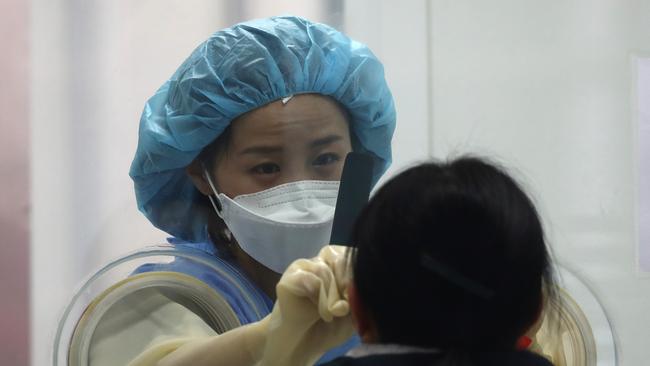
The spike came despite the government’s tightening of social distancing rules in the capital area earlier this week.
The measures include a ban on gatherings of more than 50 people and spectators at sports events. Cafes can serve only takeaways, while restaurants must close by 9pm, with only deliveries permitted afterwards.
Despite the changes, “people’s movement has not been reduced significantly”, senior KDCA official Lim Sook-young told a news briefing.
“Infections from personal face-to-face meetings have been continuing … please cancel all such meetings,” she said.
Saturday’s figure takes the total number of domestic recorded cases in the country to more than 36,800.
South Korea endured one of the worst early COVID-19 outbreaks outside mainland China, but brought it broadly under control with its “trace, test and treat” approach.
It never imposed the kind of lockdowns ordered in much of Europe and other parts of the world.
The country has previously been held up as a model of how to combat the pandemic, including by the World Health Organisation.
The public has largely followed social distancing and other rules, such as wearing face masks.
AFP
READ EARLIER: Victoria records five new cases of COVID-19
Blake Antrobus 5.10pm: Testing numbers dropping in NSW
Coronavirus testing numbers in NSW have dropped, sparking concerns from health authorities as restrictions relax ahead of Christmas.
More than 10,200 tests were carried out in NSW overnight, compared with 11,622 in the previous 24 hours.
“Testing numbers are falling again, which is a concern,” NSW Health said in a statement.
“With restrictions eased, borders having reopened and Christmas just two weeks away, it is important that we do not drop our guard against the virus.”

Photographs taken at the St Vincent’s Hospital and Bondi drive through testing clinics on Saturday show empty lots as health workers wait to test people.
In the 24 hours to Wednesday there were 14,508 tests carried out, which health authorities also believed was too low.
“While numbers have increased since the weekend, there are still too few people coming forward for testing,” a spokeswoman said earlier in the week.
Six new cases were reported from overseas travellers on Saturday with no local cases recorded.
READ MORE: Janet Albrechtsen — ‘Aussie Squad’ may be Labor’s worst nightmare
Robyn Ironside 4.55pm: Qantas, Virgin ready to rumble
Simmering tensions between Australia’s major airlines are set to erupt into a bare-knuckle battle in 2021 as Regional Express attempts to grab a share of the country’s most lucrative route — Melbourne to Sydney.
Last year, more than nine million people travelled between Australia’s biggest cities by air, suggesting there is room for a third operator on the route.
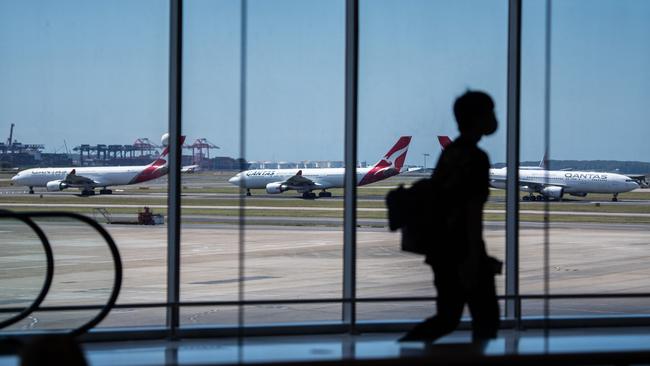
For the Qantas Group, the route is worth an estimated $1.2bn a year, making it the second-most lucrative in the world, behind British Airways’ London-New York run. But neither Qantas nor Virgin Australia is about to make room for Rex, which will initially operate six 737s, compared to Virgin Australia’s 44, and Qantas and Jetstar’s 96 narrow-body aircraft currently in service.
Read the full story here.
Frances Vinall 4.20pm: Five genes could increase Covid death risk
One of the biggest mysteries of COVID-19 has been why some people experience no symptoms from the illness, while others fall severely ill and die.
The answer may be in the genes, a new joint British and Australian study suggests.
Researchers from the University of Queensland, Monash University and the University of Edinburgh studied the genomes of 2244 critically ill patients with COVID-19 and compared the genetic makeup of these individuals to the genomes of a control group.
They found five genetic sequences more common in the critically ill COVID group.
The genes that seemed to make patients more susceptible to COVID were those involved in inflammatory processes and the body’s response to invading viruses.
Lead author Kenneth Baillie and colleagues said knowing which genes play a role in COVID susceptibility could help scientists figure out which existing medications may be able to treat or slow down the illness.
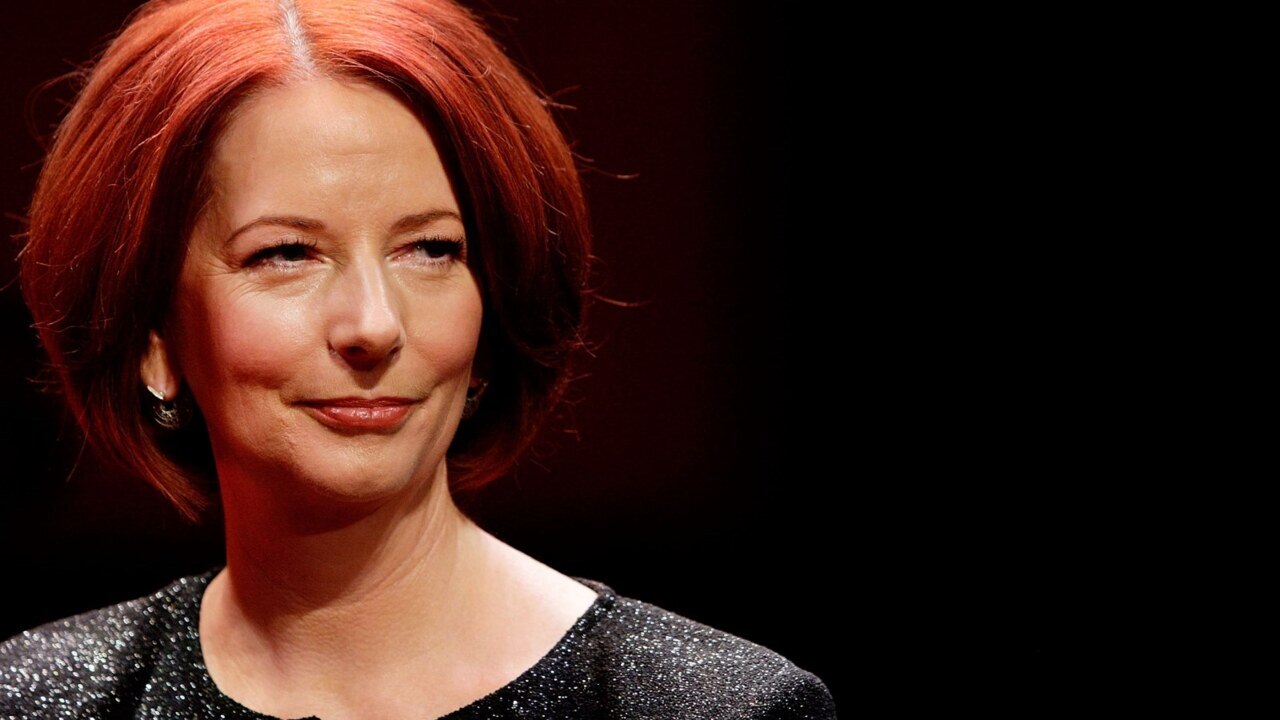
“Our findings reveal that critical illness in COVID-19 is related to at least two biological mechanisms: innate antiviral defences, which are known to be important early in disease, and host-driven inflammatory lung injury, which is a key mechanism of late, life-threatening COVID-19,” he said.
“Both mechanisms may be amenable to targeted treatment with existing drugs.
“Large-scale randomised clinical trials will be essential before any change to clinical practice.”
He said many diseases were greater or less deadly depending on your genes, including the flu.
“Susceptibility to life-threatening infections and immune-mediated diseases are both strongly heritable,” he said.
“In particular, susceptibility to respiratory viruses such as influenza is heritable and known to be associated with specific genetic variants.”
The genes identified in the study were IFNAR2, OAS, DPP9, TYK2 and CCR2.
The genetic material studied came from patients in 208 intensive care units in the UK.
READ MORE: What to get the politician who has everything? The Mahem-making monster
Tom Kingston 3.55pm: Italy’s coronavirus death toll overtakes Britain’s
Italy has overtaken the UK as the worst European country for Covid-19 deaths, as its government faces intensifying criticism over its “amateurish” policies aimed at preventing a crippling second wave.
Deaths in Italy reached 63,387 yesterday, according to a tally conducted by the Italian government, 305 more than the British toll and ending months of the UK’s leading position in Europe for fatalities. Others, such as the World Health Organisation, use different statistical methods to assess the toll.
According to the WHO, Italy has registered 1,036 deaths per million residents, the second highest in the world after Peru.
The figures were grim reading for Giuseppe Conte, the Italian prime minister, who chose to avoid a full lockdown during the second wave. He opted instead last month for an “Italian model” of a three-tier system of calibrated restrictions on movement. It has already needed strengthening, with a crackdown on movement over Christmas and Boxing Day and a nationwide 10pm curfew.
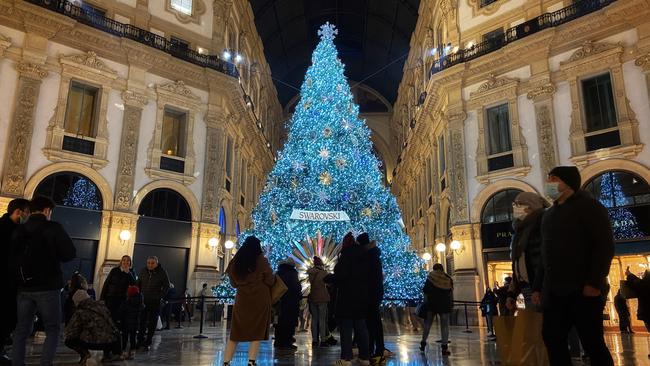
Andrea Crisanti, an Italian microbiologist who took leave from Imperial College London to help to tackle Italy’s outbreak, said that the government should have performed far better in the second wave given the high toll it suffered in the first.
“Italy’s first wave was bad luck but the second wave, which has killed 25,000, was unforgivable,” he said.
READ MORE: Chris Kenny — Our nanny state Covid response is nothing to be proud of
Agencies 3.30pm: Trump signs one-week funding stopgap, averting shutdown
The US Senate has approved and President Donald Trump signed a one-week budget stopgap that avoids a government shutdown and allows lawmakers to continue negotiations over getting pandemic relief to millions of Americans.
The Senate passed the measure by voice vote days after the House of Representatives approved the so-called continuing resolution, which extends current funding for all federal agencies through December 18.
Trump signed it Friday evening, the White House said, hours ahead of a midnight deadline that would have seen funding for federal operations dry up.
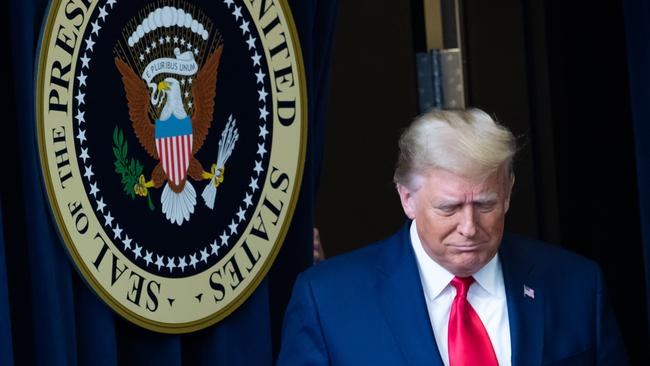
The one-week reprieve averts — for now — the stunning prospect of a government shutdown even as the country endures spiking COVID-19 infections and deaths without new economic relief for families and businesses struggling through the pandemic.
Lawmakers now have extra time to craft a rescue package, which many have sought to include in a sweeping omnibus spending bill.
But bickering over reaching a deal on pandemic relief and federal funding for fiscal year 2021, which began October 1, is setting up an intense final few days of legislative work before the Christmas holiday.
The temporary fix had faced multiple procedural threats, including from an unlikely duo, conservative Senator Josh Hawley and far-left Senator Bernie Sanders.
AFP
READ MORE: Prepare to crash out of the EU, says Boris Johnson
David Stratton 2.50pm: Has 2020 killed the cinemas for good?
For cinemagoers, 2020 began promisingly. Quality entertainments like The Gentlemen, 1917 and Little Women got the year off to a good start, while cinemas specialising in foreign language and independent fare were very well served by the award-winning Parasite (which has had exceptional success in this country), The Truth and Portrait of a Lady on Fire. These successes more than made up for the critical and commercial failures of films such as Cats and True Story of the Kelly Gang.
But, as it did everywhere else, the pandemic cast a massive blight over the film industry. Cinemas, especially in Victoria, were closed for long periods of time and are still not allowed to sell seats to capacity. For small cinemas, this has proved exceptionally difficult to cope with.
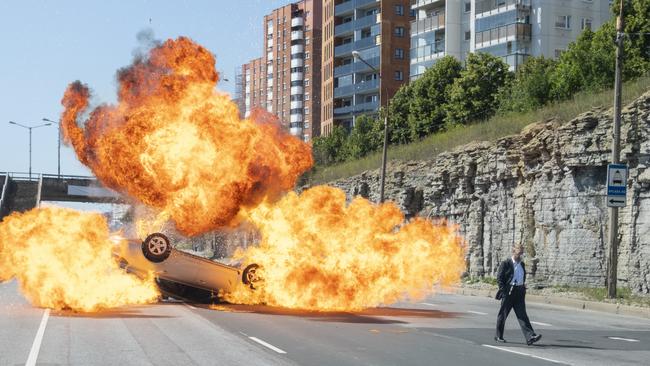
Even more disastrous has been the delays and cancellations of major film releases, brought about by factors outside the control of Australian cinemas and distributors.
Because cinemas in the US and most of Europe have also been closed for long periods of time, distributors have made the difficult decision to postpone scheduled high-profile releases.
Disney’s live-action Mulan, eagerly awaited by cinemas in March, instead launched on the Disney Channel — for a premium price. This was just the first of many potential blockbusters to be diverted from cinemas to the rival streaming channels. It was great for Netflix, Stan and the other streamers, and for people who were forced to enjoy their entertainment at home; and it was a boom for the sales of large-size TVs and sound equipment.
But when Steven Spielberg’s eagerly awaited remake of the musical West Side Story was postponed from Christmas 2020 by a whole year to Christmas 2021, cinema owners around the world shuddered.
Read the full story here.
Kat Lay 2.15pm: Britain’s GPs told to prioritise vaccine patients
As the US gets set to begin its vaccine program, British GPs who run short of coronavirus vaccine for patients aged over 80 have been told to prioritise elderly people from ethnic minorities and those who have severe underlying health conditions.
The first vaccines are set to be given by GPs in Britain on Tuesday from about 280 sites. They have been told to start contacting patients, who can expect to hear about appointments today and tomorrow.
However, there is concern that dozens of practices have opted out of the program, citing a lack of resources and fears that other patient care might be affected by the focus on COVID-19.
In NHS guidance, those not taking part have been told to co-operate with local health chiefs to ensure their patients still have access to the vaccine.
All sites going live next week will receive 975 doses of the Pfizer/BioNTech vaccine. NHS bosses wrote that if there were more than 975 over-80s locally who wished to be vaccinated “and you need to prioritise which patients should have access to the first supply”, they could consider patients’ existing illnesses and their ethnicities.
The new GP-led clinics must run from 8am to 8pm, seven days a week, under a contract negotiated between NHS England and the British Medical Association.
NHS guidance says that vaccinations will take an average of eight minutes per patient, estimating that four vaccinators could treat 100 patients in 200 minutes.
The Times
READ MORE: Paul Kelly — How Australia slayed the pandemic
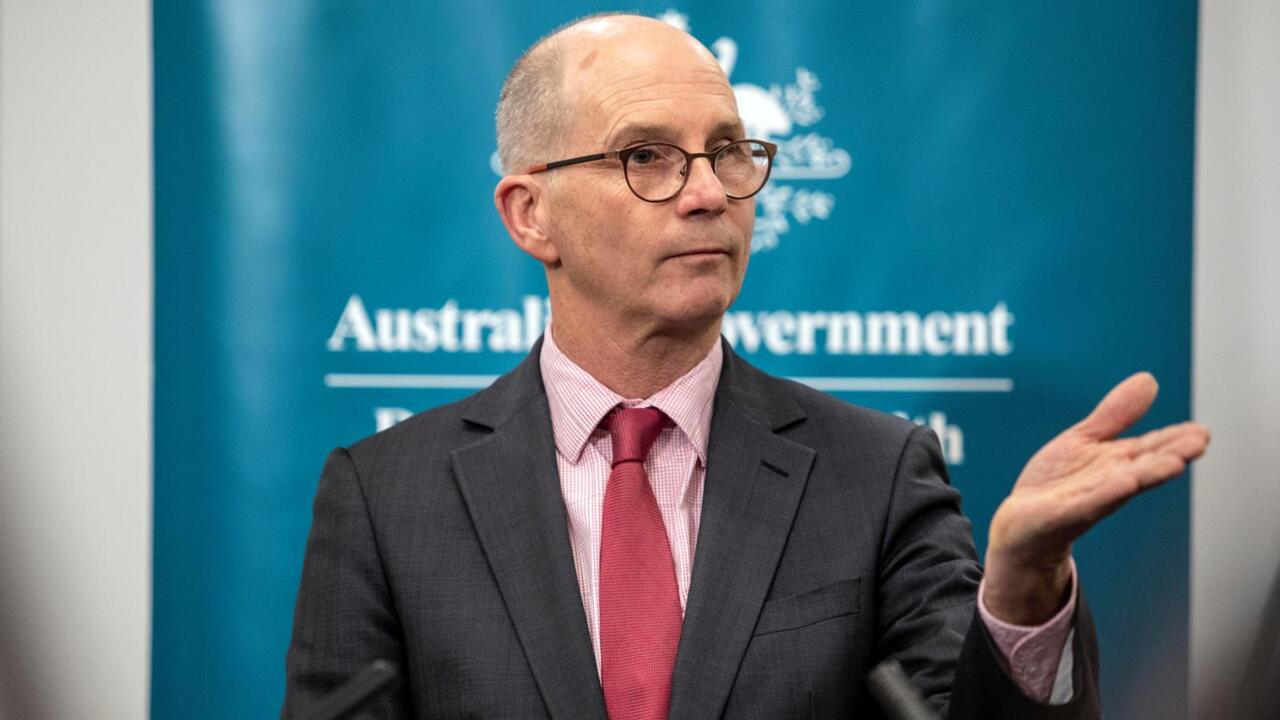
Christine Kellett 1.25pm: Pfizer vaccine cleared for emergency use by the FDA
Pfizer’s COVID-19 vaccine has been cleared for use by America’s Food and Drug Administration.
“The FDA’s authorisation for emergency use of the first COVID-19 vaccine is a significant milestone in battling this devastating pandemic that has affected so many families in the United States and around the world,” FDA Commissioner Dr Stephen Hahn said in a statement.
“Today’s action follows an open and transparent review process that included input from independent scientific and public health experts and a thorough evaluation by the agency’s career scientists to ensure this vaccine met FDA’s rigorous, scientific standards for safety, effectiveness, and manufacturing quality needed to support emergency use authorisation.
US President Donald Trump said shipping of the vaccine was already under way and the administering of it could begin “within 24 hours”.
But CNN reports the US Centres for Disease Control and Prevention must still vote to recommend the vaccine. It was due to meet on Saturday morning, it reports.
More than 290,000 Americans have been killed by coronavirus since the pandemic began
The news comes as Mexico’s health regulator on Friday granted emergency authorisation to the Pfizer-BioNTech coronavirus vaccine, Health Undersecretary Hugo Lopez-Gatell said.
“Mexico is the fourth country whose health regulatory agency, Cofepris, has granted emergency use authorisation to the Pfizer-BioNTech vaccine,” he told a news conference.
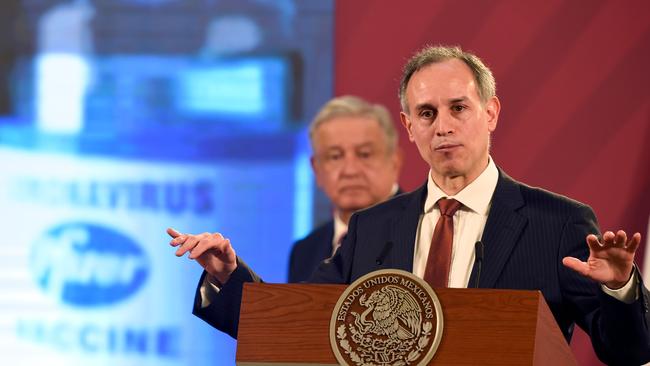
The report of the FDA approval follows extraordinary pressure applied to the regulator by the White House this week, when Donald Trump’s Cheif of Staff warned the FDA commissioner to start looking for another job if emergency clearance was not given by Friday.
More to come …
James Hall 1pm: Qld Premier’s error causes airport headache
Queensland Premier Annastacia Palaszczuk wrongly told breakfast television that travellers arriving from New Zealand at 1am on Saturday would no longer need to quarantine.
But the exception is only in place for specific allocated flights, the first of which is not scheduled to touch down in the Sunshine State until Wednesday.
The mix-up has created confusion at the Brisbane Airport and in medi-hotels where Queensland Health say some people may have been mistakenly put in quarantine as staff scramble to work out if travellers are allowed to enter the state or not.
Flights from New Zealand are arriving on Saturday but include passengers who are connecting from other countries, meaning the requirements to skip quarantine won’t be met.
The quarantine-free flights need to be specifically organised by New Zealand authorities, Queensland Health confirmed.
“Anyone who travels to Queensland from New Zealand on a quarantine-free flight – where every passenger has only been in New Zealand in the past 14 days – will not be required to quarantine on arrival,” the state’s chief health officer Dr Jeannette Young said.
“Anyone who doesn’t travel on a quarantine-free flight is still subject to 14 days mandatory quarantine.
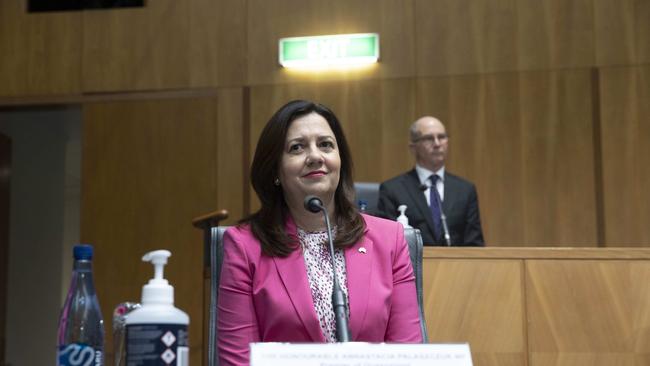
“We have a New Zealand flight arriving in Brisbane today that isn’t a quarantine-free flight, which means those people will need to complete quarantine.”
The communication breakdown has created confusion at the Brisbane Airport and in medi-hotel sites, where Dr Young said some travellers may be in quarantine unnecessarily.
“Our staff are working quickly on the ground to determine those who arrived in Queensland on a quarantine-free flight, so we can let them out of quarantine, provided they return a negative COVID-19 test,” Dr Young said.
“Unfortunately, those who didn’t travel on a quarantine-free flight will need to complete their 14 days of quarantine, because they’ve mixed with travellers from other countries.
“For the past 88 days, all of Queensland’s COVID-19 cases have been from overseas travellers and detected in hotel quarantine.
“The risk is simply too high to end their quarantine early.”
READ MORE: Palaszczuk in a bind of her own making on euthanasia
Tom Dusevic 12.30pm: Hope for deal on one-jab Janssen vaccine
Australians could soon have access to a one-jab COVID-19 vaccine being developed by Janssen.
The Weekend Australian can confirm the Johnson & Johnson pharmaceutical subsidiary is negotiating with the Morrison government on an advance purchase agreement.
If a deal is struck with Janssen it will give Australians another vaccination option after the home grown University of Queensland-CSL project for 51 million doses was abandoned on Friday.
Janssen’s viral vector vaccine is one of three candidates granted a priority pathway to approval by the Therapeutic Goods Administration.
n the past week Janssen began a rolling submission of clinical tests to the regulator, with the company expecting interim results of phase 3 trials next month.
Along with Pfizer and AstraZeneca, the two leading global vaccine candidates, Janssen is now eligible to apply for provisional registration on the Australian Register of Therapeutic Goods.
Australia has supply deals with AstraZeneca, Pfizer and Novavax.
Read the full story here.
Natasha Robinson 12pm: The pain of failure in search of Covid answers
It was a decision made under pressure. Scientists at the University of Queensland were working early in the year on perfecting their molecular clamp vaccine technology when it became apparent that the coronavirus outbreak that was ravaging Wuhan was sweeping across the world.
The molecular clamp — a prized invention of the UQ team that is able to uniquely stabilise proteins used in vaccines — had been planned to be employed in an influenza vaccine. But in the weeks in the lead up to the declaration of a pandemic, the scientists rapidly switched to using the clamp to formulate a COVID-19 vaccine.
As cases began to appear in Australia, scientists had to quickly choose from a suite of protein fragments that would be added to the coronavirus’s spike protein in the molecular clamp to stabilise it. They settled on a pair that produced the best results: two fragments of a protein found in the human immunodeficiency virus (HIV) that would help lock the SARS-CoV-2 virus into shape.
“The reality was that we tested a number of different constructs in the early days of development, and the HIV fragments were providing the greatest stability,” says Paul Young, head of UQ’s School of Chemistry and Molecular Sciences and a key member of the team that created the vaccine.
The scientists engineered the protein fragments to remove HIV antibody binding sites, and they proceeded with confidence that no human volunteers would develop a reaction to the protein fragments. They were wrong.
Soon after the 216 volunteers who were taking part in the phase 1 trials of the UQ vaccine candidate were injected with their second jab, all of them developed antibodies to the HIV protein fragments. Ultra-sensitive HIV diagnostic assay testing detected the antibodies, giving a positive result which was later ruled negative for HIV.
Read the full Inside Story here.
Robyn Ironside 11.30am: No pay til July for Virgin boss
Virgin Australia CEO Jayne Hrdlicka has told employees she will not be paid until July, in an email encouraging them to vote in favour of new work agreements reducing their pay and conditions.
Voting on the enterprise agreements opened Friday morning and will close at 1pm on Tuesday.
In an email seen by The Australian, Ms Hrdlicka urged workers to support the EAs, pointing out that “sacrifices were being made in every area of our business” to contribute to its long term success.
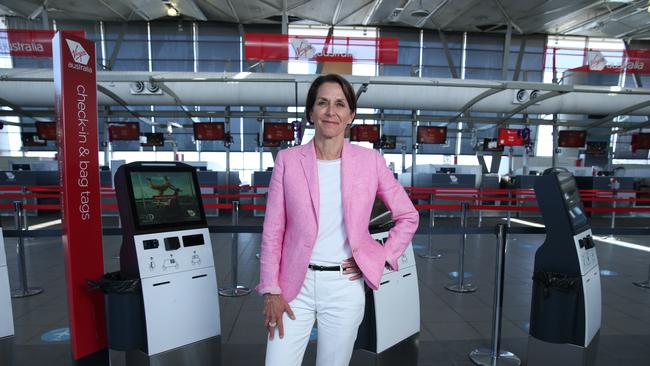
“To recognise these sacrifices we are asking all of you to make, I will not take a salary as your CEO until June of 2021,” Ms Hrdlicka wrote.
“And when my annual remuneration begins in July of 2021, it will be below market.”
She said it was important to understand that Virgin Australia was in financial trouble even before the COVID-19 pandemic began, with costs outstripping revenue.
Read the full story here.
Jared Lynch 11.15am: CSL ‘knew of HIV risk’ to vaccine trial
CSL and University of Queensland researchers knew of the potential for false HIV positives in the COVID-19 vaccine they were developing – months before the Morrison government bought 50 million doses – thinking it was a “manageable risk”.
But what it didn’t expect was for those false positive tests to show up in all 216 trial participants for the vaccine – a move that threatened to undermine the global COVID-19 vaccine effort.
The federal government has now terminated its orders for the CSL and University of Queensland vaccine – which were part of a $1.7bn deal to secure four types of coronavirus vaccine to protect Australians – fearing it would erode public confidence in all coronavirus vaccines.
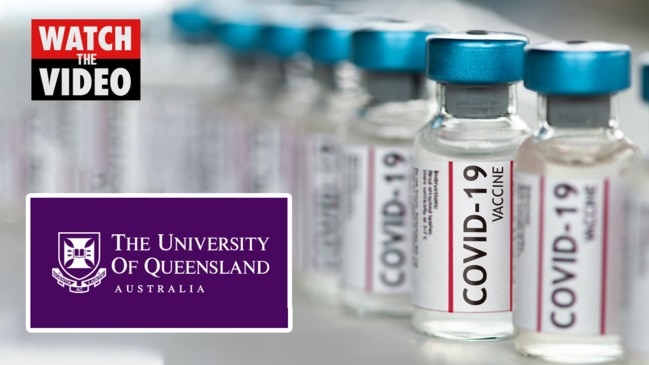
CSL and the University of Queensland’s vaccine used technology known as a molecular clamp, rather than a live virus, which used two fragments of a protein found in HIV.
Russell Basser, senior vice president research and development at CSL’s vaccine arm Seqirus, said while researchers thought there would be potential for false HIV positives, they thought they could manage the risk.
Read the full story here.
John Durie 10.40am: Reform key to our Covid recovery, say CEOs
Australia’s most powerful chief executives believe the nation’s low COVID-19 numbers have created a world-leading opportunity to secure a strong recovery, but warned political leaders will need to maintain the co-operation that suppressed the virus and pursue ambitious reforms to underpin prosperity.
A survey by The Weekend Australian of chief executives of more than 80 of the nation’s largest and most influential companies finds “cautious optimism’’ about the economy’s prospects next year.
But to achieve this, reforms to tax, industrial relations, education, childcare, aged care, infrastructure and skills development would need to be pursued.
CEOs said the pandemic had accelerated by years the take-up of digital technology, initiated work-from-home practices that would likely be permanent and revived home cooking.
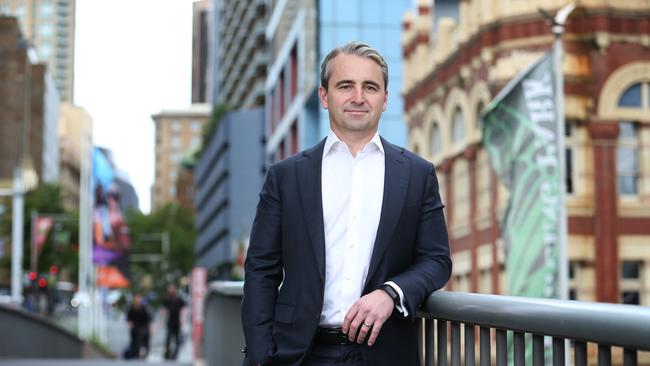
Commonwealth Bank chief executive Matt Comyn said: “Given our relative outperformance against both health and economic measures, Australia has a unique window of opportunity to bring highly skilled migrants into the country, including expats who have been overseas.
“A variety of reforms can make Australia an even more attractive destination. Reforms can also help bring more dynamism and productivity into the economy — for example, following the lead of NSW beginning to remove inefficient taxes like stamp duty mean that capital can move more freely in the economy.’’
Read the full story here.
Angela Shanahan 10.15am: How Covid — not activists — achieved the feminist mission
How fortunate are we Australians? And don’t we know it.
Instead of the doom and gloom we expected from the time of COVID, a recent survey has shown that the pandemic caused a positive evaluation of our priorities. More than 80 per cent have a positive outlook.
The time of pandemic has pointed to the future, especially the future of the way we will work. It has allowed many families to recalibrate the work-life balance that until now has eluded us. Previously, it was seen solely through the narrow prism of full-time work and institutional child care.
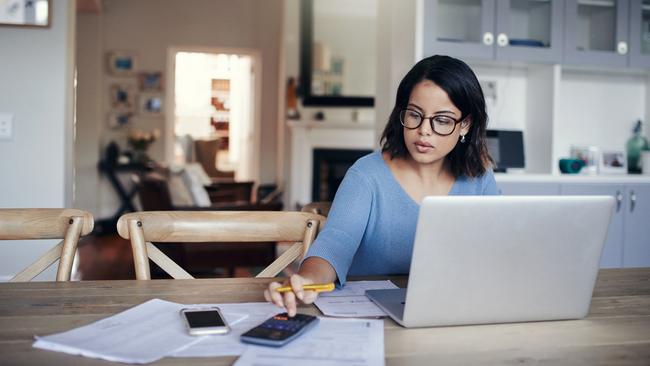
But the push for the dual-income family with full-time working mother eluded the ideological script writers; instead, Australian women preferred working part-time — more than any other country in the OECD. This suits women with children, and childcare is expensive. But among feminist groups and professional associations, still focused on the work side of the balance, the pandemic was an opportunity to push for even more childcare and, indeed, a continuation of free institutional care, good for single parents and poorer families.
However, the main reason it won’t be universal is not just the budget-breaking expense but the recalibration of family life in intact families caused by the work-from-home phenomenon.
Read Angela Shanahan’s full analysis here.
Christine Kellett 9.45am: Victoria records five new cases of COVID-19
Victoria’s virus-free streak has been broken with five new cases detected in hotel quarantine.
The state’s Department of Health and Human Services said the cases were internationally acquired.
Victoria had gone 42 days without a new case. The state’s death toll stands at 820.
Yesterday there were 0 new locally acquired cases and 5 new cases acquired overseas and in quarantine. There were 0 lost lives lost and 8,737 test results received. #EveryTestHelps #StaySafeStayOpen
— VicGovDHHS (@VicGovDHHS) December 11, 2020
More info: https://t.co/lIUrl0ZEco#COVID19Vic pic.twitter.com/O7sqg0v3Ne
READ MORE: Peter van Onselen — If politics were fair, Albanese would be on top
Rosie Lewis 9.30am: Australia can wait on vaccine, others can’t
Australia does not need to fast-track emergency approval for COVID-19 vaccines because it is not in the same desperate situation as other countries, health authorities have said.
But the commonwealth will buy an additional 20 million doses of the vaccine developed by AstraZeneca and Oxford University, with a trial run by CSL and the University of Queensland collapsing after some patients began recording false-positive HIV results.
The US Food and Drug Administration on Friday recommended the emergency approval of a separate COVID-19 vaccine being developed by Pfizer, paving the way for it to be administered from next week as the country records more than 220,000 new cases every day.
Britain is already administering the Pfizer vaccine, with Canada expected to begin on Friday.
Scott Morrison said health authorities were monitoring the vaccine rollout in other countries, but approval would be “on Australian rules with Australian officials and on the Australian time frame”.
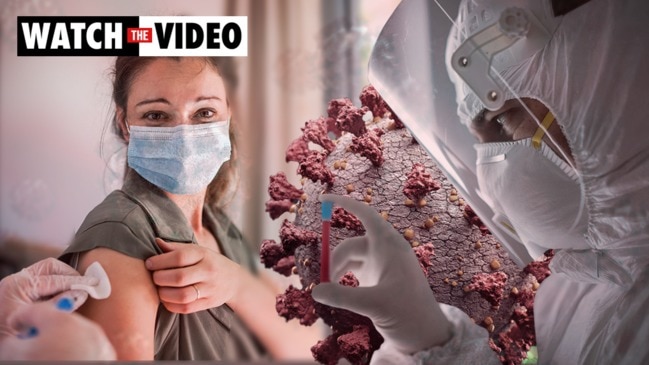
“Overseas, vaccination is the only thing they’ve got, frankly, now to address what is a level of communication of the virus that is happening in the community,” the Prime Minister said. “Because of the hard work done by Australians here and the arrangements that have been put in place by all those you see in front of you and our governments, Australia is not in that situation.”
Read the full story here.
Cameron Stewart 9am: US vaccine coming as cases soar
The momentous decision by the US drug agency to recommend that Pfizer’s COVID-19 vaccine be approved for use was a bittersweet moment for Americans.
It means that Americans will almost certainly begin receiving coronavirus vaccinations from early next week, with the Federal Drug Administration expected to accept its advisory board’s advice and approve the vaccine for use within days.
While this marks the beginning of the end of the pandemic, it will come too late for more than 100,000 Americans who are expected to become infected and die in the next few months before the vaccine reaches them.
The 23-member board voted by a 17-4 majority, with one abstaining, that “on the totality of scientific evidence available” the benefits of the Pfizer vaccine “outweighed its risks for use in individuals 16 years of age and older”.
The news comes as the country is living through an ever-escalating health nightmare that is toppling grim new milestones each day.
Within days the death toll will top 300,000, dwarfing that of any other country.
Read the full story here.

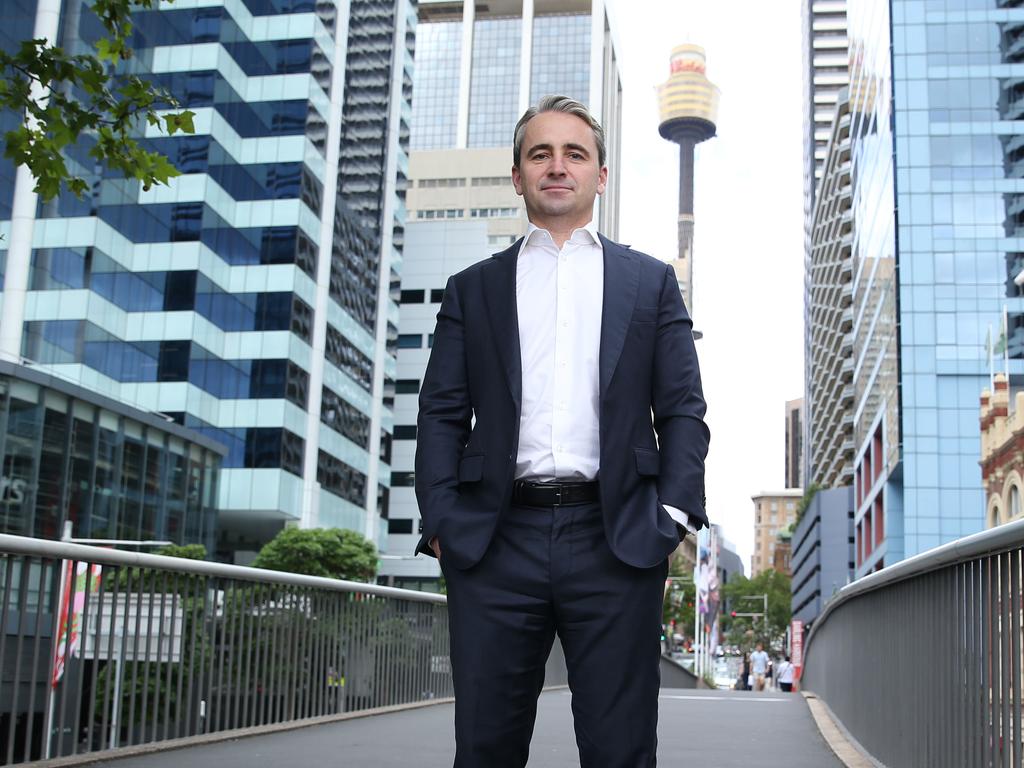
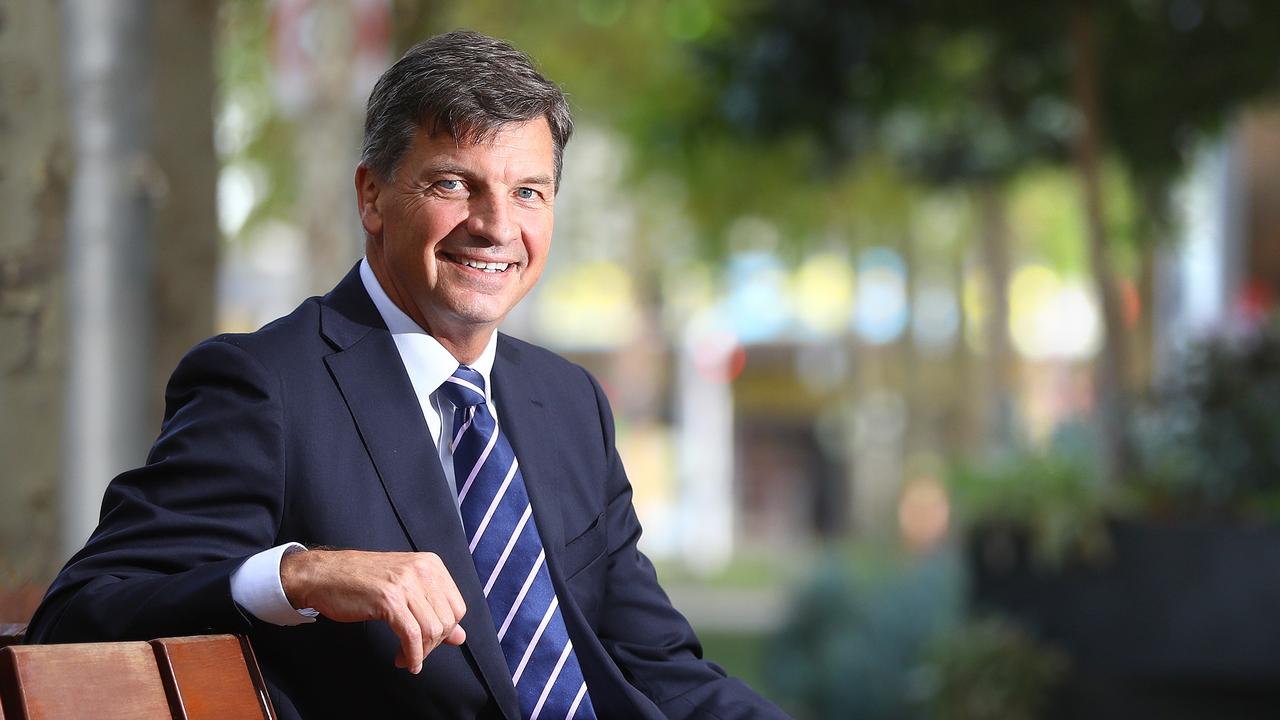
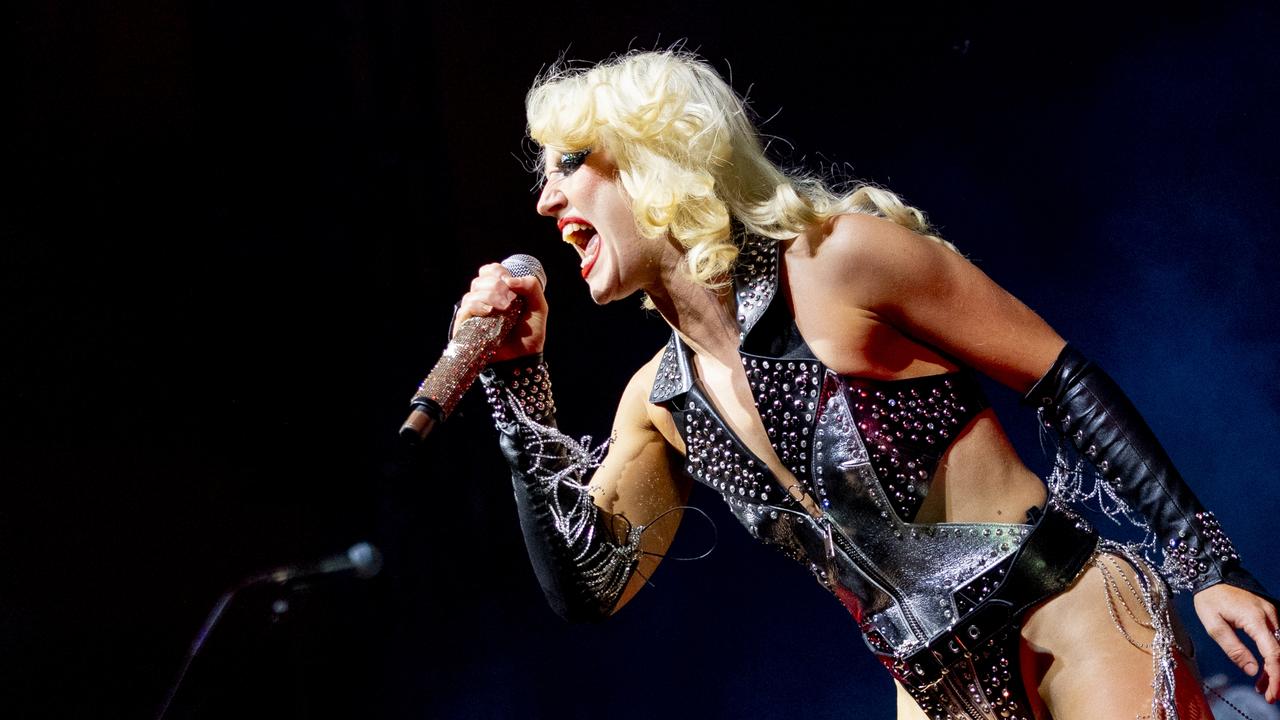
To join the conversation, please log in. Don't have an account? Register
Join the conversation, you are commenting as Logout